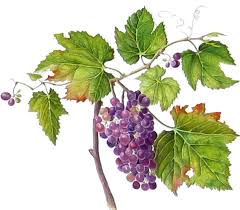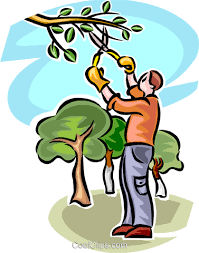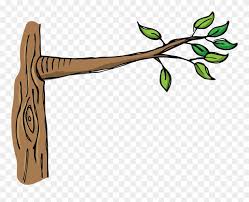John 15:1 – "I am the true vine, and my Father is the vinedresser."
As we know, Jesus often used the natural things of this world to explain spiritual principles to his listeners. In this case, he made use of a grape vine. This may have been prompted by the wine they just drank at the Passover meal, especially if this conversation took place in the same room as the Passover celebration.

Alternatively, if this conversation took place as the group walked to the Mount of Olives, it may have been sparked by the numerous grape vines growing along the road.
In either case, vineyards were very common in this region. Throughout the scriptures, God often compares his people, the nation of Israel, to a vine which he planted (Isaiah 5:1-7, Psalms 80:8-16, Jeremiah 2:21, Ezekiel 19:10, etc).
Isaiah 5:7 - For the vineyard of the LORD of hosts is the house of Israel, and the men of Judah his pleasant plant.
Psalm 80:8 - You have brought a vine out of Egypt: you have cast out the nations, and planted it.
The only way Israel (the vine) could have a relationship with God was through the Law. But as we know, the law could not give life. It could convict you for sin and sentence you to death, but it had no power to redeem. Therefore, any branch (individual Israelite) who depended upon the vine of the Law had no hope of redemption or spiritual life. Any/all of the fruit his life produced resulted in death:
Romans 7:5 -For when we were in the flesh, the passions of sins, which were by the law, did work in our members to bring forth fruit unto death.
This brings up an interesting question - What about Jesus?
Because Jesus was born a Jew, he was also considered a branch of Israel, who was subject to the Law:
Isaiah 11:1 - And there shall come forth a rod out of the stem of Jesse, and a Branch shall grow out of his roots:
(For a fuller description, see Isaiah 11:1-9). But Jesus was no ordinary male Israelite! Because he was the Messiah, the sinless Son of God, he broke the curse of the Law by perfectly fulfilling it (Matthew 5:17).
In his role as the Messiah/Redeemer, he replaced the old, dead vine of the Law. He became the new or true, living vine. As the true vine, Jesus is the source and support of all spiritual life and blessing.
Through the gospel, Jews as well as Gentiles can be grafted into the living vine of Christ (Romans 11:1-25). These believers (branches) are now firmly secured in Christ; they have access to all the 'nourishment' they will need to be a true disciple of Christ including teaching, guidance, grace, strength and supernatural gifts. Any/all of the fruit they bear produces life and holiness:
Romans 6:22 - But now being made free from sin, and become servants to God, you have your fruit unto holiness, and the end everlasting life.
In essence, Jesus is telling the disciples that the law is about to pass away and be replaced by the age of grace, which he ushered in by his own blood. His also further explains the relationship between himself, the Father and each believer.
It was God who appointed his Son to be the source of all life and blessings to mankind. Consequently, grace and mercy flow to mankind exclusively through the Son. There is no other source of spiritual life (John 14:6).

Furthermore, Father God is said to be the one who exercises the care and maintenance of the vineyard. It is his job to nurture, trim/prune, water, fertilize and protect the branches. In other words, God takes care of all those who are united to Jesus by faith.
In the natural realm, the vine dresser would be interested in the growth and welfare of the branches because he is looking for them to produce an abundant harvest. Likewise, God is very interested in the growth and welfare of each individual believer (and the church collectively) because he desires for us to produce much fruit in his kingdom. As we will shortly discover, he has promised to answer our prayers and grant our requests in order to make that happen.
John 15:2 – "Every branch in me that does not bear fruit he takes away, and every branch that does bear fruit he prunes, that it may bear more fruit."
The vine dresser is described as having two chief duties in regards to the branches:
To remove all fruitless branches – In the natural realm, any good gardener will remove dead shoots, stems or branches from the vine. This strengthens the plant and promotes more growth.
Remember, in the spiritual realm, 'branches' refer to individual people. In every generation there are people who claim to be members of the family of God. They do so by outward profession, good works or acts of moral discipline. But these things can (and are) often done without any true root in Christ. Although we may be fooled by these false fruits, God is not. He knows the heart of every person and at the proper time he will cut off those that are not true believers in Christ.
God often accomplishes this by revealing the true root of what is deep inside the person's heart. He will bring that to the forefront and call upon the individual to make a choice – repent or fall away.
The most obvious example of this was when God revealed the greed at the core of Judas Iscariot's soul. Judas had multiple chances to repent of this, but he chose not to. Eventually, because of his own choice, God removed him from the fellowship of disciples because he was a rotten fruitless branch.
To prune or cleanse branches that bear fruit – In the natural realm, branches that are fully attached to the vine will bear fruit. But they can bear even more fruit if pruned correctly.
This is what God does in the supernatural realm. He cleanses/prunes away things that hinder the Christian in his or her sincere walk with Christ.
Some of the things that hinder us are evil, such as pride, lust, unforgiveness, etc. Obviously, we will be more fruitful in our spiritual walk when we are purged of these things.
But good things can also hinder our Christian life/growth, if they become too important in our lives, or if they get in the way of a fuller, closer walk with Christ.

For instance, there is nothing wrong with a Christian having earthly possessions or wealth. There is nothing wrong with a Christian who enjoys entertainment or hobbies. But if these things come between us and a closer walk with Jesus, God may intervene in our lives by allowing some kind of affliction/trial to touch us.
We all hate trials and afflictions, but they frequently serve a very important purpose in our lives. They have the power to realign our priorities, reminding us what is really important – our eternal spiritual lives. Thus, a trial or affliction is one way God can 'prune' away anything that hinders us from bearing more fruit in the kingdom.
As the master vine dresser, God prunes each of us individually in whatever manner is appropriate for us at the time. He uses a combination of our consciences, Holy Spirit fire and/or water, the Word, afflictions, trials and even blessings.
John 15:3 – "Already you are clean because of the word that I have spoken to you."
'Clean' does not mean perfect. Nor is 'clean' the result of any legal or ceremonial rite/purification under the law.
Rather, spiritual cleansing/purification comes from believing and obeying the word/doctrines/truth of Jesus.
1 Peter 1:22 - Seeing you have purified your souls in obeying the truth through the Spirit.
(See also John 17:17). The word of Christ, which the disciples received by faith, purified their hearts (Acts 15:9). For the last three years the disciples had been under a constant process of purification while they were following Jesus. Sometimes they made great strides, sometimes they stumbled, but overall they were true disciples who had made great progress.
In fact, Jesus had trained them so well that immediately after his death, with the aid of Holy Spirit, they would be ready to go and bear fruit for the kingdom by preaching the word, demonstrating the supernatural, baptizing believers and organizing the church. And as they did so, God continued to prune them, which continued to increase their fruitfulness.
We should expect nothing less. As we immerse ourselves in the word of God, Holy Spirit will invigorate that word in our lives, activating its cleansing virtue. It will root sin and corruption from our lives, just as fire burns away impurities from gold (Malachi 3:1-3).
With the aid of Holy Spirit, we too can boldly proclaim the gospel message, allow the supernatural to work through us, baptize/disciple new believers and expand the kingdom of heaven here on earth.
The evidence that we are cleansed by the word is the spiritual fruit we bear. We can rest assured that God will continue to prune us, so that our fruit will be even more abundant than before.
John 15:4 – "Abide in me, and I in you. As the branch cannot bear fruit by itself, unless it abides in the vine, neither can you unless you abide in me."
Here Jesus reiterates a concept he has already presented. Since he is repeating himself, we need to sharpen this truth to a point and drive it into our hearts, so that it changes us forever.
We would never expect a branch to break off of a vine or tree and yet still be able to bear fruit, because the branch depends upon the trunk of the plant/tree to provide all of the nourishment required not only for fruit, but for life itself.

We intrinsically understand that if a branch breaks off from a vine or tree, it is dead at that very moment. It may take a short time to wither and dry, but nevertheless death is certain. The only way for the branch to live is to maintain an attachment to the tree/vine.
This illustrates our relationship with Christ; our spiritual life is completely dependent upon communion with him.
But what does it really mean for us to abide in Christ and for him/his word to abide in us? Perhaps we can best explain it by outlining what it is NOT:
- Abiding in Christ is NOT mere intellectual acceptance of his doctrines. Even the demons believe, but they are certainly not abiding in Jesus (James 2:19).It's true that the seeds of the gospel are first planted in our minds/intellects, but Holy Spirit must make them sprout and take root deep within our hearts in order for them to effectively anchor us in Christ. We can only abide in him (and he in us) when his word becomes a part of our very being.
- Abiding in Christ is NOT hearing a biblical truth on Sunday morning and then living in the world for the remainder of the week. While Sunday sermons are certainly beneficial in many ways, simply attending church is not enough to abide in Christ. We must search the scriptures for ourselves; we must meditate on the words of truth until they transform our words and actions. When we think like Christ, act/live like Christ, and love like Christ, then we know that we abide in him and he abides in us.
- Abiding in Christ is NOT adhering to a set of rules and regulations through your own strength. The burden of obeying a bunch of rules without a relationship is called slavery, and it is a miserable existence. When we commune with Christ, we are changed in our inner man (our soul) and that change is eventually reflected in our outward actions and obedience (John 14:21-23). This kind of obedience is not a burden. It is natural and easy because we desire to do what is righteous and good in his sight. We know we abide in him (and he in us) when we desire to please him.
John 15:5 – "I am the vine; you are the branches. Whoever abides in me and I in him, he it is that bears much fruit, for apart from me you can do nothing."
The more we abide/commune with Christ, the more spiritual 'sap' will run through our lives and consequently, the more fruit we will be able to produce.
To commune is defined as 'to think, reflect or meditate; to converse with another in sympathy and confidence, to take council.' It implies an intimate, close relationship between the people enjoying the communion. To be in communion means to spend time in each other's company, exchanging thoughts, ideas, confidences/secrets and council. It is a place of safety and acceptance.
To commune with Christ is to spend time in his presence, reflecting and meditating on his word. This is where you learn to hear/recognize his voice. It is the place where Jesus reveals his plans and goals for the world and for our own lives. It is the place of intimacy and safety where we can admit our lives don't measure up to the standards of holiness we find in the word. It is the place where we can seek his wisdom for matters both great and small. It is a place where we recognize our need to let go of our own sinful desires and goals.
The more we commune with Christ, the more we become like him. As we spend time in his presence, our thinking is changed to be consistent with his; his desires and goals become ours. The more we commune with Christ the more anxious we are to rid ourselves of sin and become holy, like he is. The more we are connected with him, the more fruit we will bear for the kingdom.
By contrast, it would be impossible for a person to bear fruit if they have separated themselves from Christ.
John 15:6 – "If anyone does not abide in me he is thrown away like a branch and withers; and the branches are gathered, thrown into the fire, and burned."
This statement confirms the necessity of continuously and steadfastly abiding in Christ.
Those who are firmly anchored in Christ will produce both internal and external fruits of holiness. They are unshaken during times turmoil:
Luke 6:48 –He [the one who hears the sayings of Christ and obeys them] is like a man who built a house, and dug deep, and laid the foundation on a rock: and when the flood arose, the stream beat vehemently upon that house, and could not shake it: for it was founded upon a rock.
By contrast, people who separate themselves from Christ are dead and useless, tossed about by every storm that hits.
Those who refuse to abide in Christ deprive themselves of the spiritual nourishment that flows from him. They forfeit the influence and guidance of the Spirit, the direction of the word, the protection and provision of the Father, the pardon of sin and the enjoyment of heaven.
They fail in the one true purpose of the branch – to bear fruit for the vine.
As a result of their choice, God will punish them as apostates. They will be cast out of the presence of God, gathered up as useless withered branches and burned in the fires of hell at the end of the age.
Matthew 13:49-50 - So shall it be at the end of the world: the angels shall come forth, and sever the wicked from among the just, and shall cast them into the furnace of fire: there shall be wailing and gnashing of teeth.
John 15:7 – "If you abide in me, and my words abide in you, ask whatever you wish, and it will be done for you."
Let me begin by saying there have been numerous times in my life when I asked God for something but did not get what I asked for. My guess is that at one time or another, this has been your experience as well. Where did we go wrong?
Well first off, we see that this promise is not unlimited – it has stipulations:

Jesus/the Word must abide in you: The commands and doctrines of Jesus must continually be in our hearts and minds. Again, this far surpasses mere intellectual knowledge; his word must be written on our hearts (Jeremiah 31:33). It must influence what we think, feel, speak and believe. As we grow in grace and become more like Christ, our selfish sinful desires are supplanted or superseded by his perfect holy will.
We must abide in Jesus: For our part, we must place our faith in Jesus and be steadfastly committed to him which results in obedience to his commands. We must allow his word and his Spirit to transform us into his image (II Corinthians 3:18).
We must ask: We ask for things through prayer. We must pray in faith, in the name of Jesus Christ, with the intent of bringing glory to God.
1 John 5:14-15 - And this is the confidence that we have in him, that, if we ask anything according to his will, he hears us: and if we know that he hears us, whatsoever we ask, we know that we have the requests that we desired of him.
Whatever we ask will be done: When we abide in Jesus and he/his word abides in us, our requests will be in line with the divine will of God. These requirements keep us from making improper petitions/requests. Whenever we ask according to his will, we are assured of receiving what we have asked from God.
John 15:8 – "By this my Father is glorified, that you bear much fruit and so prove to be my disciples."
By this: This refers to the words Jesus spoke in the prior verse – if we abide in him and his words abide in us, we can ask for anything and it will be done. The true meaning would be something like this: 'In doing whatever you ask, the Father is glorified because your requests are instrumental in bearing much fruit and becoming disciples of Christ. "
As indicated, bearing fruit does two things:
It glorifies God: When a vine produces strong, vigorous branches which are fully laden with mature fruit, it is an honor to the master gardener. It reflects all of his planning, work and care.
 In the same way, God is honored when his children are fully anchored in the Son, bearing the fruits of righteousness, holiness and obedience (Romans 6:22). He is further glorified when we demonstrate his love to the lost by allowing his mighty miracle working power to manifest through us, just as Jesus did when he was on the earth.
In the same way, God is honored when his children are fully anchored in the Son, bearing the fruits of righteousness, holiness and obedience (Romans 6:22). He is further glorified when we demonstrate his love to the lost by allowing his mighty miracle working power to manifest through us, just as Jesus did when he was on the earth.
It is true proof of our discipleship in Christ: We know we are disciples when we have a living union with Christ – when his words abide in us, and we abide in him. Our union with him allows our prayers (which are in Jesus' name) to be heard of the Father, who is ready to grant all of our requests. The results of this are that we bear fruit and glorify his name. These are the marks of a true disciple.
Let me offer you some encouragement:
Once Judas had been removed, Jesus tells the rest of the disciples they are 'clean' through the word he had spoken to them. As we noted earlier, this did not make them perfect.
But it did make them justified in the sight of God, despite all of their faults, sins and imperfections.
You and I have the same assurance as well. As long as we continue to be firmly rooted in Christ we will be justified by our faith in him. As long as we continue to depend upon Holy Spirit to lead/guide us and God to prune us, we will continue to grow spiritually and increase in fruitfulness.
Let me offer you some relief:
When you abide in Christ and he abides in you, you have been grafted into the true, living vine of Christ and you are expected to bear fruit in the kingdom of heaven. But let me give you some relief – you don't do that in your own strength.
Because you abide in Christ, you have access to all the teaching, grace, strength and gifts you will need for every season of your life.
What season of life are you in right now? What gifts do you need to do the work God has called you to do? Would you like to operate in supernatural healing, or words of wisdom and knowledge? Are you in a position where you could really us the gift of discernment of spirits or supernatural faith?
The gifts of Holy Spirit are still operating in the earth today. If you need one, I urge you to go straight to the throne room of God and make your request. You can ask with confidence knowing that God will grant your request.
Let me offer you some strength:
Here is something fun to consider. Scripture tells us the following things:
God has ordained good works for each believer to accomplish on earth (Ephesians 2:10). God grants all the requests that we make to him that are in accordance with his will, which aid us in bearing fruit (John 15:7, I John 5:14-15). God intends to reward us for the fruit that we bear on earth (I Corinthians 3:8-14)
This means that God set up good works for us, provided us with all we need to accomplish them, and then rewards us for doing them! How awesome is that – our Father has set us up to win; there is no way we can lose!
With that in mind, let's joyfully get to work in the kingdom!
